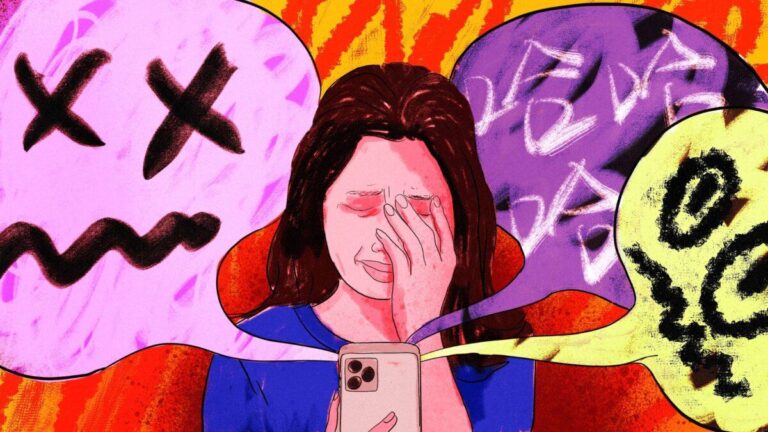Ten individuals accused of cyberbullying France’s First Lady have officially stood trial, marking a significant moment in the country’s ongoing battle against online harassment. The case, which has drawn widespread attention both domestically and internationally, highlights the growing concerns over digital conduct and the challenges of protecting public figures in the social media era. This article outlines the key details of the trial, the allegations involved, and the broader implications for French law and society.
Accused Faces in France’s High-Profile Cyberbullying Case Against the First Lady
In a landmark trial capturing national attention, ten individuals have been charged in connection with an orchestrated cyberbullying campaign targeting France’s First Lady. The case has ignited widespread debate over the boundaries of free speech and the responsibilities of social media platforms in policing online harassment. Prosecutors presented evidence including threatening messages, doctored images, and coordinated troll activities aimed at discrediting the First Lady’s public image. Legal experts note that the outcome could set important precedents for how digital abuse is addressed in French courts.
Key aspects of the trial include:
- Defendants range in age and background, highlighting the broad reach of online harassment.
- The alleged offenses encompass not only cyberbullying but also incitement to hatred.
- Social media companies are under scrutiny for their role and responsibility in monitoring abusive content.
| Charge | Number of Accused | Potential Sentence |
|---|---|---|
| Cyberbullying | 10 | Up to 2 years imprisonment |
| Hate Speech | 7 | Up to 3 years imprisonment |
| Defamation | 5 | Fines up to €15,000 |
Legal Framework and Challenges in Prosecuting Online Harassment in France
France has enacted comprehensive legislation targeting online harassment, notably under the Loi pour la Confiance dans l’Économie NumĂ©rique and recent reforms enhancing protections against digital abuses. These laws criminalize a spectrum of behaviors, from repeated threatening messages to the dissemination of hateful content. However, prosecuting cyberbullying cases, especially those involving public figures such as the First Lady, remains complex. Legal authorities must balance freedom of expression with protection from defamation and intimidation, often navigating ambiguous boundaries that vary across digital platforms. Moreover, the rapid evolution of online communication tools frequently outpaces legislative measures, challenging prosecutors to effectively gather digital evidence that meets stringent admissibility standards.
Key obstacles faced by French prosecutors include:
- Identifying anonymous offenders hidden behind VPNs or fake profiles.
- Jurisdictional issues when perpetrators operate from outside France.
- Ensuring timely preservation and collection of ephemeral online content.
- Balancing public interest with privacy rights during investigations.
| Challenge | Description | Impact on Prosecution |
|---|---|---|
| Anonymity | Users conceal identity through proxies or false accounts | Delays suspect identification and evidence attribution |
| Cross-Border Jurisdiction | Harassers located outside national boundaries | Complicates cooperation with foreign law enforcement |
| Ephemeral Content | Messages vanish quickly on some platforms | Challenges evidence preservation and submission |
| Freedom of Speech | Protecting expression while curbing abuse | Requires careful legal interpretation to avoid overreach |
Preventative Measures and Support Systems to Combat Cyberbullying Effectively
Addressing cyberbullying requires a multifaceted approach that combines proactive education, robust digital policies, and accessible support networks. Schools and workplaces should implement comprehensive awareness programs focused on empathy, digital etiquette, and the consequences of online harassment. This educational foundation is critical for fostering responsible online behavior from an early age. Additionally, social media platforms and internet service providers must continue enhancing their content monitoring tools, ensuring swift removal of harmful material and empowering users to report abuse with ease.
Beyond technological defenses, the establishment of support systems is essential for victims navigating the emotional aftermath of cyberbullying. These may include:
- Dedicated helplines staffed by trained counselors available 24/7
- Online forums offering peer support and resources
- Legal aid services to guide victims through reporting and judicial processes
- Community outreach initiatives that encourage bystander intervention
| Preventative Strategy | Key Benefit | Responsible Parties |
|---|---|---|
| Digital Literacy Education | Builds empathy and awareness | Schools, NGOs |
| Advanced Reporting Tools | Accelerates abuse removal | Social Media Platforms |
| Emotional Support Networks | Offers victim reassurance | Community Groups, Mental Health Providers |
| Legal Guidance Resources | Facilitates justice process | Legal Aid, Government |
To Conclude
As the trial of the 10 individuals accused of cyberbullying France’s First Lady unfolds, it underscores the growing legal and societal challenges posed by online harassment. The proceedings will not only determine accountability in this high-profile case but also highlight the broader implications for digital conduct and the protection of public figures in the digital age. Observers and citizens alike await further developments as the justice system addresses these serious allegations.




